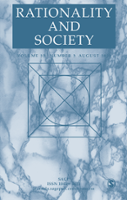Scholarly consensus that social ties resolve social dilemmas is largely predicated on common knowledge of networks. But what happens when people do not know all relevant social ties? Does network uncertainty translate into worse outcomes? I address these concerns by advancing the notion of a Network Estimation Bayesian Equilibrium to examine cooperative behavior under different epistemic conditions. When networks are common knowledge, I find that all possible outcomes of an original cooperation game can be realized in equilibrium, albeit with a higher likelihood of defection for more connected players. Variable knowledge of the network also has a distributional impact. With incomplete network knowledge, it’s possible to observe reversed equilibrium behavior when more connected players actually cooperate more often than less connected ones. In fact, aggregate network uncertainty in some social contexts incentivizes more mutual cooperation than would be the case with common knowledge of all social ties.
Social Dilemmas with manifest and unknown networks
Social Dilemmas with manifest and unknown networks
- Armando Razo
- Publication Date
February 1, 2020 - Website
- View Publication Information
 The College of Arts
The College of Arts